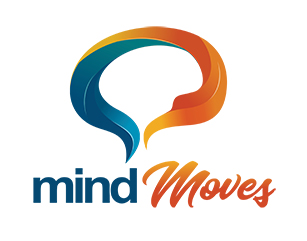Book Recommendation: Buddha’s Brain by Rick Hanson, PH.D with Richard Mendius, MD

You can see from the picture of the book that there’s a bunch of ‘flags’ popping out of the pages which means there’s lots of key things in here for me. Big thanks to Rosh who mentioned this book at a presentation back in 2018. Yes – it’s taken me a while; and I was very disciplined, resisting the temptation to purchase it by adding it to my Fishpond account ‘wish list’ where it sat for a bit before the audiobook was plonked into my shopping cart last year and the paperback arrived a couple of months back!
Buddha’s Brain, the audio book is excellent and given the information covered, I needed to have the hard copy book as a visual as well, as there was so much for me to take in.
Drs Rick Hanson and Richard Mendius offer a clear and practical connection to the wisdom teachings of the Buddha. Combining scientific research, they offer a comprehensive understanding of the mysteries of the mind. Yes – there’s the technical explanations of the neuroscience, and this coupled with how to enhance well-being and develop ease, compassion and reduce suffering, provides a rich and well-informed insight into how we do what we do and ways we can find peace and understanding within ourselves. It’s a lovely combination of neuroscientific facts and research coupled with spiritual wisdom and it’s a book I’m already dipping into regularly.
There are so many pearls in his book to choose from, so I’ll pick two that landed with a thump and have stuck with me.
The first pearl is “…your brain is like Velcro for negative experiences and Teflon for positive ones – even though most of your experiences are probably neutral or positive.” Negative events generally have more impact than positive ones and bad information carries more weight than good information. Rick refers to John Gottman’s research where he found it typically takes about five positive interactions to overcome the effects of a single negative interaction. Negative experiences tend to leave an indelible trace on our brains and therefore they’re easier to access and often trickier to overcome.
Remember five positive experiences each day can be a stretch for some of us, and when we do, and when we make the time to acknowledge what we’re grateful for, our not-so-pleasant experiences can fade into the background a little.
Second pearl – we need to be on our own side. For me this was about the voice in my head and how it’s not always my number one cheerleader. In my blog a few months’ back I talked about my inner cricket. Buddha’s Brain refers to being kind to ourselves and how most of us bring less kindness to ourselves than we do to others. “Nurturing your own development isn’t selfish. It’s actually a great gift to other people.” This reminded me of the saying about putting on your own oxygen mask first.
In these days of stressed and overloaded minds, it’s easy to step into the ‘me too’ part of the conversation when someone’s having a hard time. You know, when someone’s telling us how bad things are for them and we say, “that happened to me too …” and carry on our own tale of woe. It doesn’t help the other person at all, and if that’s what we’re attempting to do, then we’re mistaken. When we make time to support ourselves and gift ourselves time out, rest, relaxation, space and calm, we can more effectively support those around us – friends, family, colleagues and staff. When we’re kind to ourselves and we are on our own side, we can make the space to help others more readily. Being on our own side is also about being gentle with ourselves when we make a mistake and remembering that we’re a HB (human being). Yes – that means we’re a verb, a being! This chunk of info was a welcome reminder for me as my inner voice can be a hellava taskmaster at times!
The last chapter of the book is closer and I’m already there in my mind as I’ve got the last CD on high rotate in the car. If you choose to delve into your inner wisdom I hope you enjoy this book as much as I have.
